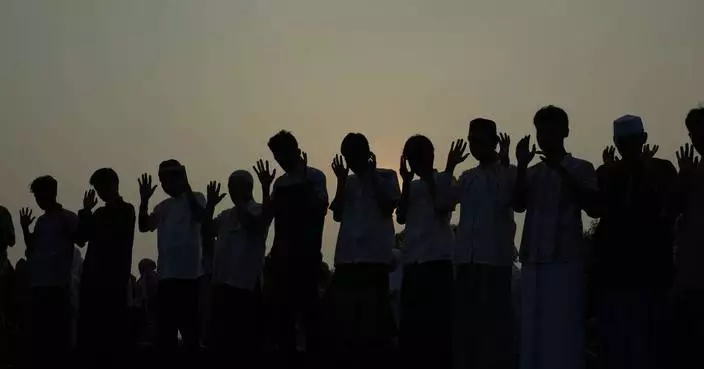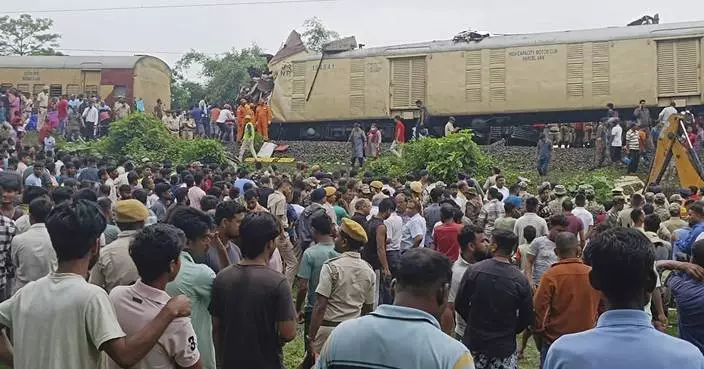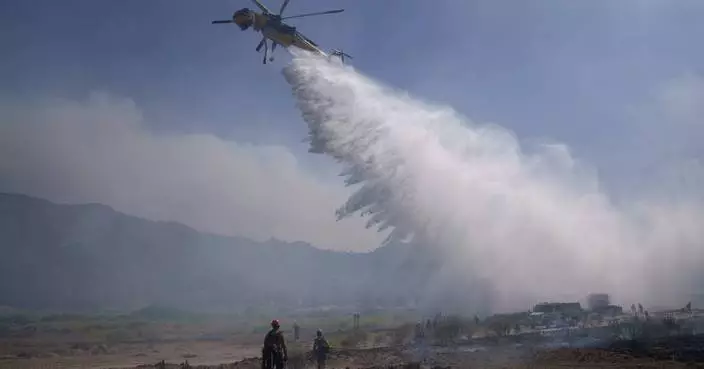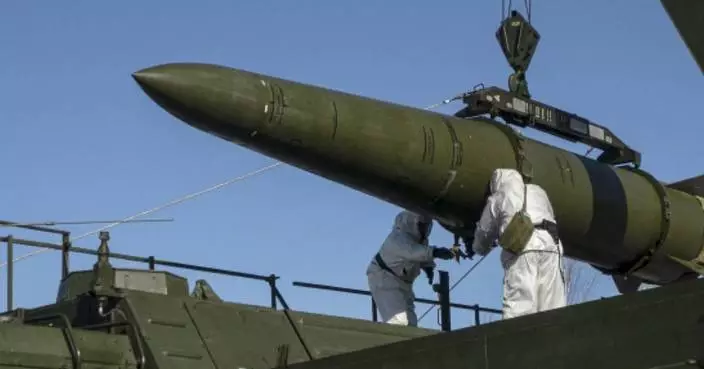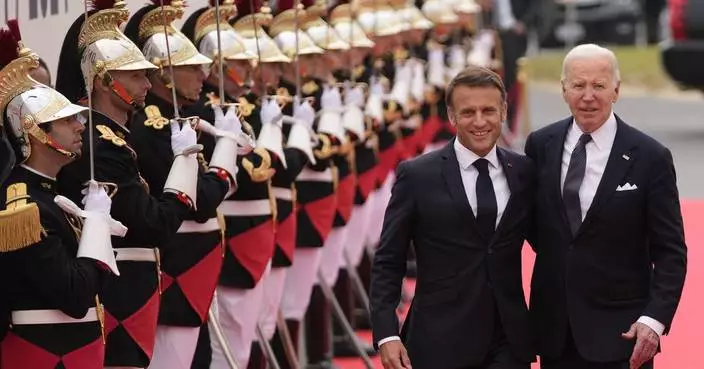MEXICO CITY (AP) — Warnings were issued well before a campaign event about high winds that caused a deadly Mexico stage collapse this week, raising questions about why those alerts went unheeded.
Organizers didn’t cancel an outdoor campaign rally in a suburb of the northern city of Monterrey, leaving the crowd only seconds to react when the stage structure, lighting and a giant screen were blown down, killing nine people and injuring 192.
It was tragically par for the course for a country where Category 5 Hurricane Otis killed 52 people in the resort of Acapulco; to urists say they got little so warning or protection, they had to huddle behind bathroom doors as the hurricane blew out the windows and even the walls of their hotel rooms.
On Thursday, just hours after Wednesday's collapse, officials in Monterrey said the winds occurred with no warning and that nobody could have predicted them. “This thing yesterday took us by surprise. There wasn't even a storm forecast for the city," said Nuevo Leon state Gov. Samuel Garcia.
That was simply not true. Mexico's National Weather Service had issued a bulletin at 1:13 p.m. — more than six hours before the collapse — warning of gusts of wind up to 43 mph (70 kph) in the area that “could blow down trees and billboards.” Another bulletin at 6:28 p.m. warned of possible tornados in the area.
Jon Porter, the chief meteorologist at AccuWeather, said outside stages are vulnerable to winds of as little as 35 mph (56 kph). He said radar and other observations suggest the winds at the Monterrey venue probably reached around 50 mph (80 kph) Wednesday, noting high winds “create special safety risks to elevated stages.”
“This is the type of situation that should not have been a surprise, at this particular venue, because these super thunderstorms were approaching and these kinds of thunderstorms are well known to produce gusty winds," Porter said.
“This is another tragic disaster that could have been averted by improved severe weather risk mitigation and situational awareness," Porter said. “In situations like these, the venue can be proactively evacuated and people moved to safe shelter prior to the arrival of gusty winds.”
Porter said his company had been sending special alerts to businesses in the area who subscribe to AccuWeather's service 35 minutes before the winds arrived in the area.
The Citizens Movement party that organized the rally did not immediately respond to questions about why they did not cancel the event or evacuate the crowd beforehand.
Meanwhile, any hopes the Mexican government might learn from the event were crushed on Thursday, when President Andrés Manuel López Obrador — who is a political ally of the Citizens Movement party — absolved them of any blame, even before an investigation was carried out.
“We know that they are not to blame,” the president said Thursday. “Like everybody else, they were holding a rally during the campaign."
The dangers of outdoor stages in high winds have long been known. In the United States, a similar stage collapse killed seven people at the Indiana State Fair in 2011 a nd sparked change among outdoor venue operators.
“It was a watershed moment,” Porter said. “People saw very vividly how quickly something can go wrong and how lives can be taken in a matter of seconds.”
In the wake of the 2011 Indiana collapse, the U.S.-based Event Safety Alliance industry trade group was formed to help prevent such tragedies.
Steven Adelman, the vice president of Event Safety Alliance, said “the big lesson from Indiana ... was that people who are running an outdoor event have to pay better attention to meteorology. The weather is not a surprise.”
Adelman said the best practice if a storm is approaching — if there is time — is to lower heavy objects like speakers and screens down from the stage, because they can contribute to strains on the structure. But the primary step is to get people away from the stage.
“You may not be able to protect the structure, but who cares?” Adelman said. “People matter.”
It is not clear if Mexican officials have yet learned those lessons.
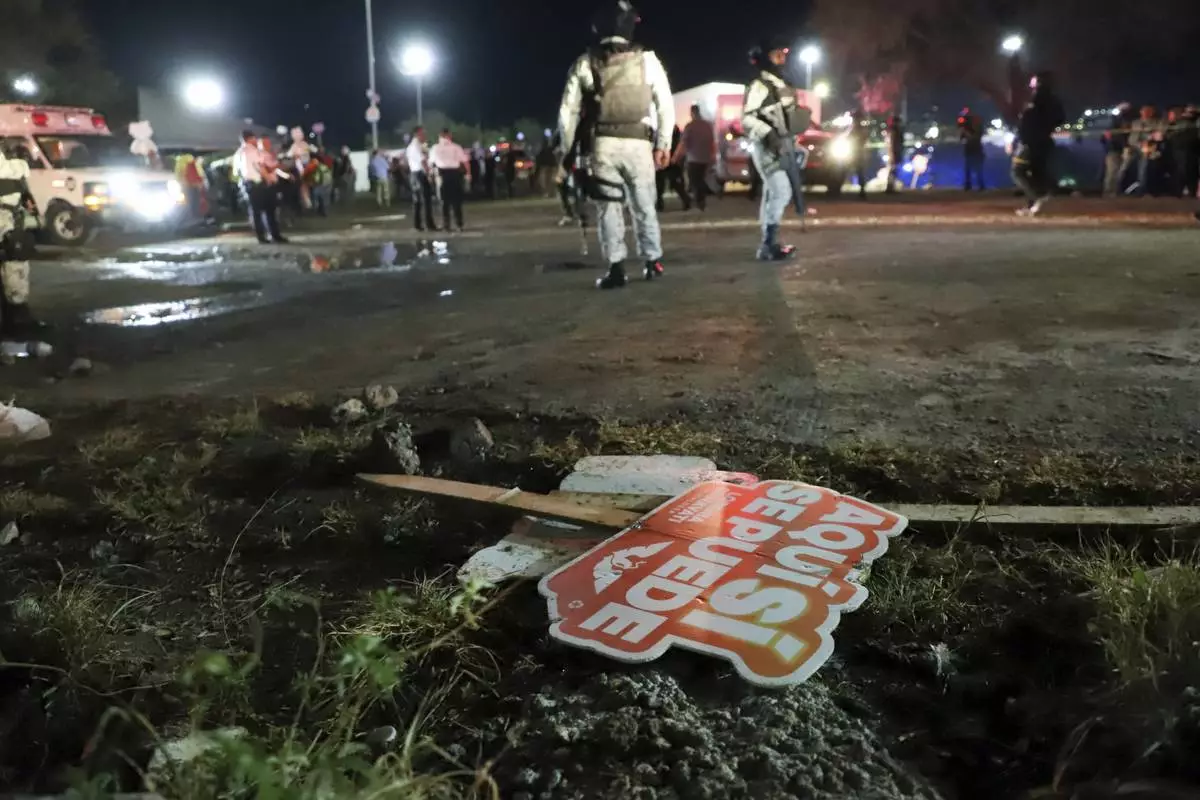
Electoral signs lay on the ground as security forces secure the area after a stage collapsed due to a gust of wind during an event attended by presidential candidate Jorge Álvarez Máynez in San Pedro Garza García, on the outskirts of Monterrey, Mexico, Wednesday, May 22, 2024. Several people were killed and dozens injured. (AP Photo/Alberto Lopez)
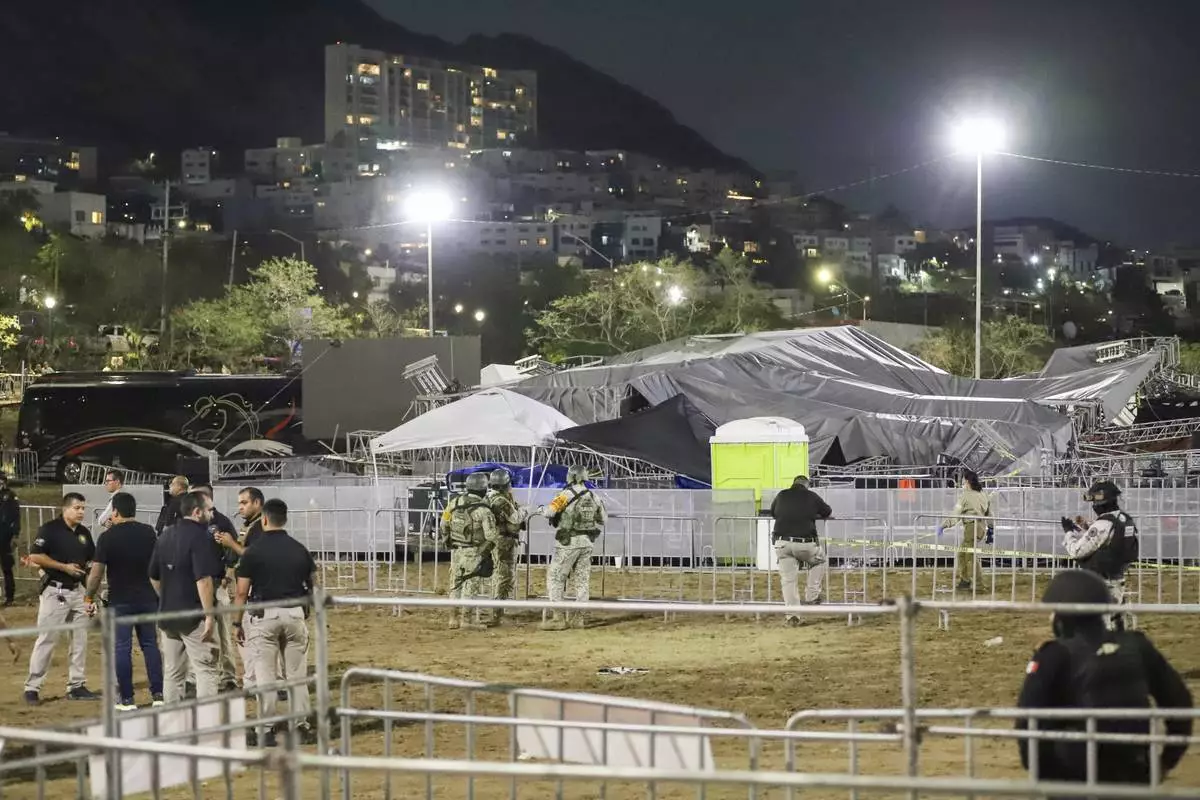
Security forces stand around a stage that collapsed due to a gust of wind during an event attended by presidential candidate Jorge Álvarez Máynez in San Pedro Garza García, on the outskirts of Monterrey, Mexico, Wednesday, May 22, 2024. President Andres Manuel Lopez Obrador confirmed that multiple people were killed and at least a dozen were injured. (AP Photo/Alberto Lopez)
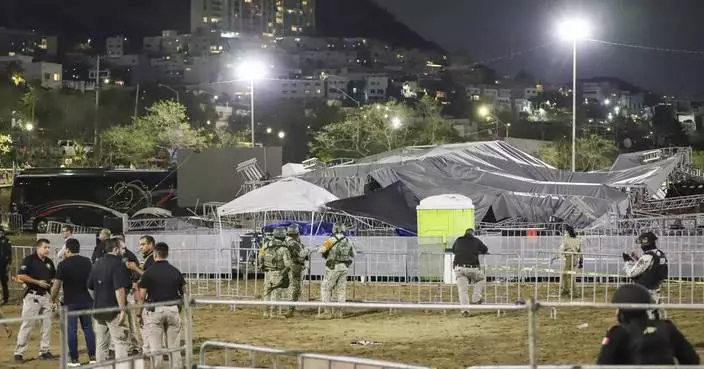
Warnings were issued about high winds before deadly Mexico stage collapse, but they went unheeded
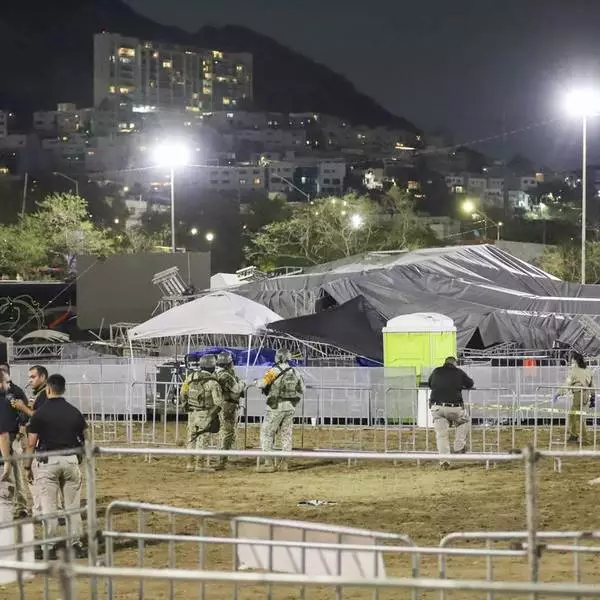
Warnings were issued about high winds before deadly Mexico stage collapse, but they went unheeded






